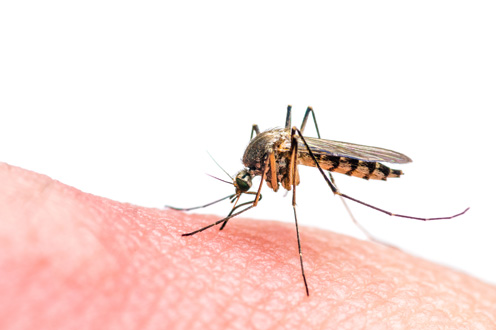Travelling This March Break? What You Need to Know About the Zika Virus

With March Break travel plans on the horizon for many, the ever-growing threat of the Zika virus is all over the news, and our minds. The virus has been linked back to popular family destinations like the Caribbean and Mexico.
I spoke to Dr. Vivien Brown, a preventative health expert and family doctor who is also a board member of Immunize Canada. We discussed the best ways to keep your family safe while abroad and what is known about the Zika virus so far.
The virus has been known since 1947 but it didn’t do much more than present as flu-like symptoms. In Brazil, the medical community has started to identify an association between Zika and microcephaly. It’s correlation, not causation at this point, but officials are recommending precautions for pregnant women.
Most brain development occurs in the first trimester, which means it is a particularly dangerous time for infection. It is unclear if there is a safer period of time to be infected during pregnancy or if transmission is possible during breastfeeding. It has not been shown to be airborne.
It’s an evolving, changing situation and Canada is protecting its blood supply. You will not be able to give blood for 21 days after you have been travelling to certain destinations. As the situation is an evolving one, check here to be confirm if your travel plans will impact any planned donations. So far Zika is not a risk in Canada, but for those travelling, the virus is a real concern.
While it can be transmitted through saliva (kissing), the most common method of transmission is by mosquito bite. The virus has been traced to stagnant water in such Latin American destinations as Brazil, Columbia and Mexico.
For this reason, precautions to avoid Zika are similar to what you would take to avoid malaria:
- Make sure you have and use insect repellent
- Avoid standing water
- Wear long sleeves
- Use mosquito nets during sleep
- Pay attention to the food and beverage safety, sanitation methods and the overall health of your family.
4 out of 5 adults bitten will not get the Zika virus, so it is still fairly uncommon. In comparison, the most common cause of death when travelling is actually death by car accident.
Accordingly, It’s important to pay attention to things we can control, Dr. Brown explains. Enterotoxigenic E. coli is the most common cause of traveller’s diarrhea. The Ducarol vaccine can help prevent this discomfort when taken two weeks prior to travel. Other important vaccines include those against Hepatitis A and B.
As far as vaccines go, work is underway for a Zika vaccine. As the World Health Organization has called the Zika virus an emergency, global efforts are underway in vaccine development’but it will take an expected two to three years before it’s ready for use.
March Break can be a time for fun in the sun if you take reasonable precautions. With a little pre-planning, you can enjoy your vacation beachside instead of bedside.















